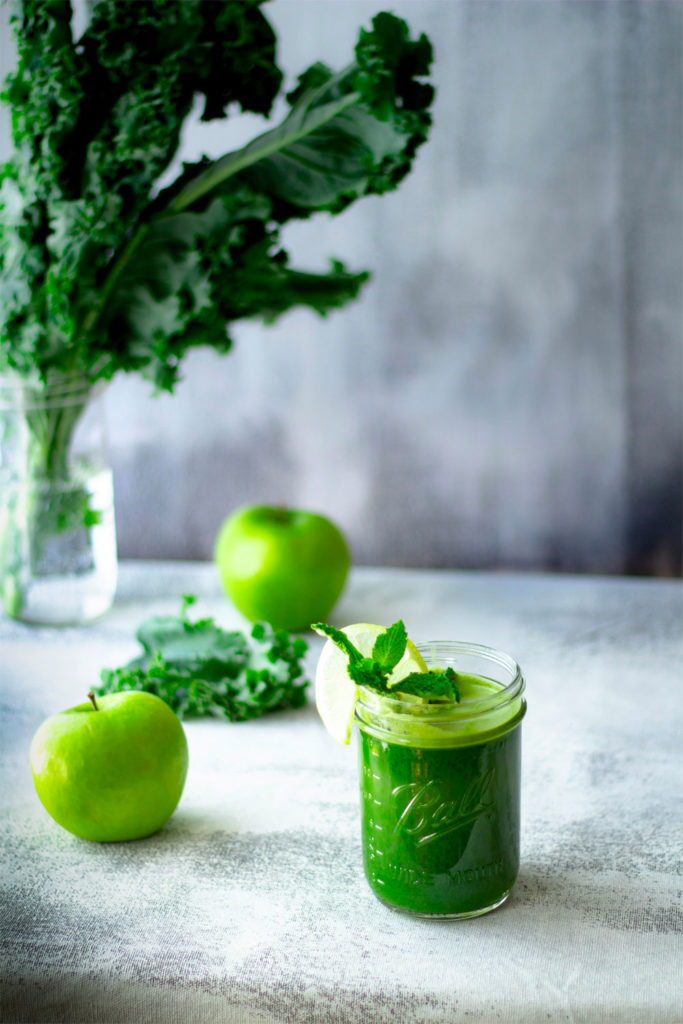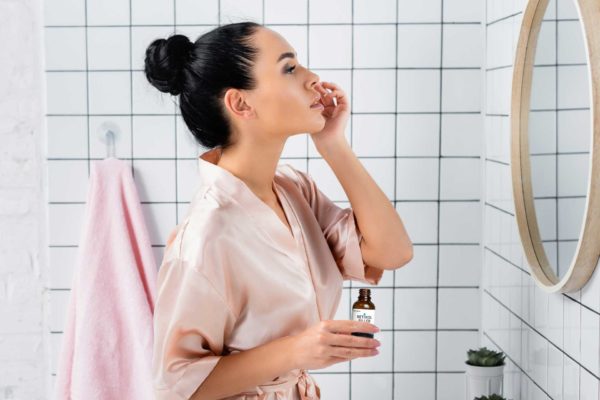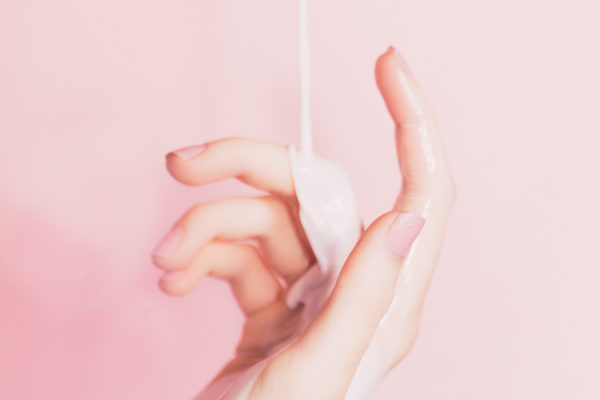What Are Skincare Antioxidants? (& Do You Need Them?)
By
2 years ago
They're more important than SPF, according to our expert.

Cleanse, tone, moisturise, SPF: that’s the daily skincare regime, right? Wrong. Many of us are missing a vital step in our skincare routine, which could be the secret to optimising skin health and radiance. Skincare antioxidants have long been a must-have for beauty industry boffins, so we spoke to leading aesthetician and skincare authority Dr Dean Rhobaye to get the low-down on these high-impact skincare ingredients.
What Are Skincare Antioxidants?
First thing’s first, what exactly are skincare antioxidants? They are naturally occurring or synthetic substances that help protect the skin from free radical damage. Free radicals are unstable molecules that can damage skin cells, leading to premature ageing, dullness, and an increased risk of skin conditions. Antioxidants protect your complexion by neutralising these harmful free radicals, preventing them from causing oxidative stress. The efficacy of antioxidant ingredients including vitamin C and green tea have been proven via numerous studies, and when combined with anti-ageing ingredients such as retinols, the results can be impressive.
So how do they work, and how do you choose the right one for your skin? We’ll let Dr Dean Rhobaye take it from here…
How important are antioxidants in skincare?
‘Antioxidants play a vital role in skincare due to their ability to combat free radicals (or “reactive oxygen species”). Free radicals are unstable energised molecules that can damage cells through a process called oxidative stress and contribute to various skin issues, including premature ageing, wrinkles, dullness, and hyperpigmentation.
‘Several factors contribute to the formation of these free radicals in the skin, the most important of which is damage caused by ultraviolet A (UVA) and B (UVB) irradiation. Most of the UVA and UVB exposure comes from the sun and, to a lesser extent, from artificial light and is collectively referred to as “photoageing”. Other environmental aggressors, such as pollution and the ozone, can also cause free radicals. Antioxidants work by neutralising these harmful free radicals, thus protecting the skin from oxidative stress. Incorporating antioxidants into your skincare routine can help maintain a healthier, more youthful complexion over time.’
How would you compare the importance of the inclusion of antioxidant products vs anti-ageing ingredients such as retinol?
‘When comparing antioxidant products to anti-ageing ingredients like retinol, it’s essential to understand their respective roles and benefits. Antioxidants primarily focus on preventing and minimising damage caused by free radicals. They offer many benefits, including reducing inflammation, improving skin tone and texture, and enhancing overall skin health. Common antioxidants used in skincare include vitamins C and E, green tea extract, resveratrol, and niacinamide.
‘On the other hand, retinol is a vitamin A derivative (retinoids) known for its potent anti-ageing properties. It stimulates collagen production, increases cell turnover and exfoliation, and helps reduce the appearance of fine lines, wrinkles, and age spots. Retinol can also improve skin texture, promote a more even complexion and reduce breakouts (such as in acne). Retinol is converted to tretinoin in the skin, a stronger type of retinoid that doctors sometimes prescribe for its more potent efficacy.
‘Both antioxidants and retinol/retinoids can be valuable additions to a skincare routine, but they serve different purposes. Antioxidants primarily protect the skin from environmental damage, while retinol/retinoids focus on rejuvenating and repairing the skin at a cellular level. Combining both can provide a comprehensive skincare approach, addressing preventive and corrective measures.’

Getty Images
How do you incorporate antioxidants into your skincare regime, and what products would you recommend?
‘Incorporating antioxidants into your skincare regimen is relatively simple. Here’s a suggested approach:
- Cleansing: Start by cleansing your face with a gentle cleanser suitable for your skin type.
- Toning: Follow up with a toner to balance the skin’s pH levels and prepare it for better product absorption.
- Antioxidant serum: Apply an antioxidant-rich serum containing ingredients like vitamin C (L-Ascorbic acid), vitamin E, ferulic acid, green tea or botanical extracts. Serums are typically lightweight and can be easily absorbed into the skin and are usually applied once a day in the morning.
- Moisturiser: After the serum has fully absorbed, apply a corrective moisturiser that also contains antioxidants or ingredients that help restore and maintain the skin’s barrier, such as ceramides, cholesterol and fatty acids.
- Sunscreen: Finish off your daytime routine with a broad-spectrum sunscreen to protect your skin from harmful UVA and UVB rays.
‘At night, use a good quality retinol/retinoid after allowing the skin to dry for 20-30 minutes post-cleansing. Follow up with a corrective moisturiser.
‘As for product recommendations, it’s important to consider your skin type, concerns, and preferences. You must look at the formulation when choosing a specific product, as not all antioxidant products are effective. That is because factors such as the pH, concentrations, and specific mixture and subtypes of the antioxidants used play a crucial role in determining the product’s efficacy and ability to penetrate the skin. Unfortunately, most commercially available antioxidants, which claim to be “clinically proven, ” have not been adequately clinically tested.
‘Generally, I recommend the SkinCeuticals range of antioxidants, regarded as best-in-class, backed by peer-reviewed clinical studies. Indeed, much of the pioneering research into antioxidants was performed by Dr Sheldon Pinnell, Emeritus Professor of Dermatology, who founded the company, hence the reputation of SkinCeuticals as the “antioxidant authority”, given their experience in this field.
‘Their products include CE Ferulic (for dry, ageing skin), Phloretin CF (for normal to combination skin, especially if pigmented) and Silymarin CF (for oily skin). CE Ferulic has also been recently shown to be effective against free-radical damage caused by environmental aggressors such as pollution and the ozone. However, it’s always best to consult with a skincare professional or dermatologist to determine the most suitable products for your specific needs.’
How does skincare play into a wider aesthetic approach to beauty such as Botox and fillers?
‘Skincare and aesthetic approaches like Botox and fillers can complement each other in achieving overall beauty goals. Skincare primarily focuses on improving the skin’s health, appearance, and texture through preventive and corrective measures. It involves regular maintenance, protecting the skin from external factors, and nourishing it with beneficial ingredients.’
Anything else we should know about antioxidants in skincare?
‘In addition to their role as free radical scavengers, antioxidants in skincare can offer a range of other benefits,’ says Dr Rhobaye:
Brightening and evening out skin tone: Antioxidants like vitamin C can help reduce the appearance of hyperpigmentation, dark spots, and uneven skin tone, resulting in a brighter complexion.
Soothing and calming properties: Certain antioxidants, such as green tea extract or chamomile, possess soothing and anti-inflammatory properties. They can help alleviate redness, irritation, and sensitivity, making them suitable for sensitive or reactive skin.
Anti-ageing properties: The L-Ascorbic acid form of Vitamin C has also been shown to aid collagen synthesis, stability and cross-linking to help strengthen tissue and reduce the visible signs of ageing. In contrast, other forms of Vitamin C (such as calcium ascorbate, ascorbyl palmitate, and magnesium ascorbyl palmitate) have minimal evidence to support their role in collagen synthesis, again emphasising the importance of formulation.
‘Remember, skincare is a journey that requires consistency and patience. It’s vital to choose high-quality products with stable and potent forms of antioxidants (such as L-ascorbic acid in the case of vitamin C), store them properly (preferably in opaque, airtight containers), and follow a routine that suits your skin type and concerns. Consulting with a skincare professional can provide personalised guidance and help you achieve the best possible results with antioxidant-rich skincare products.’
EXPLORE
Find out more about Dr Dean Rhobaye at sloaneclinic.co.uk










